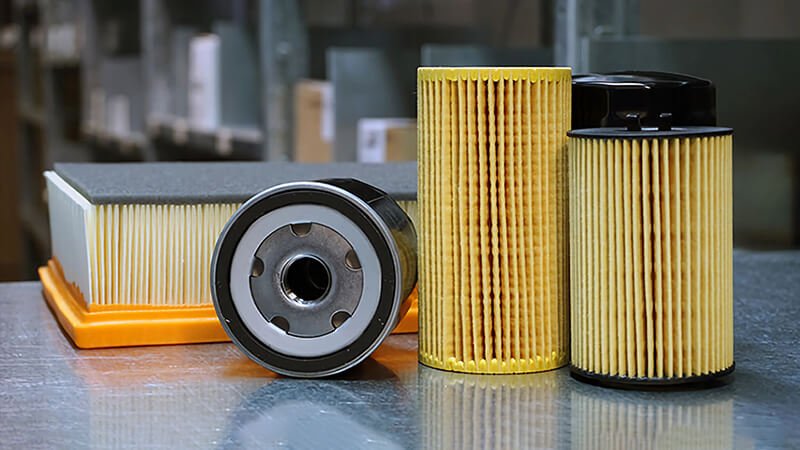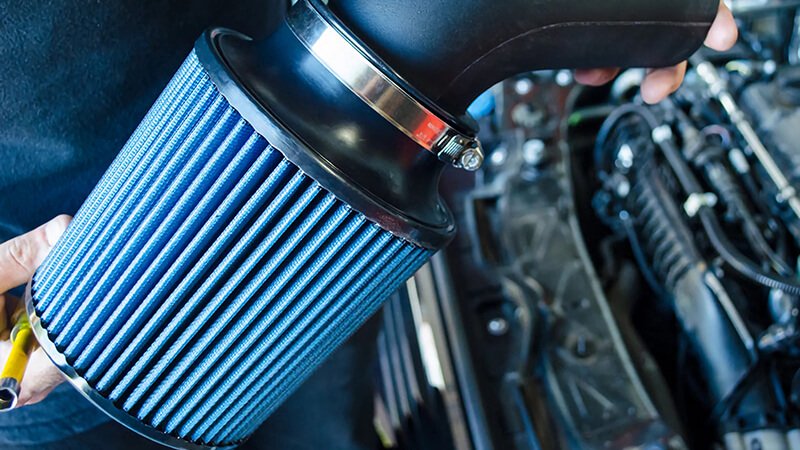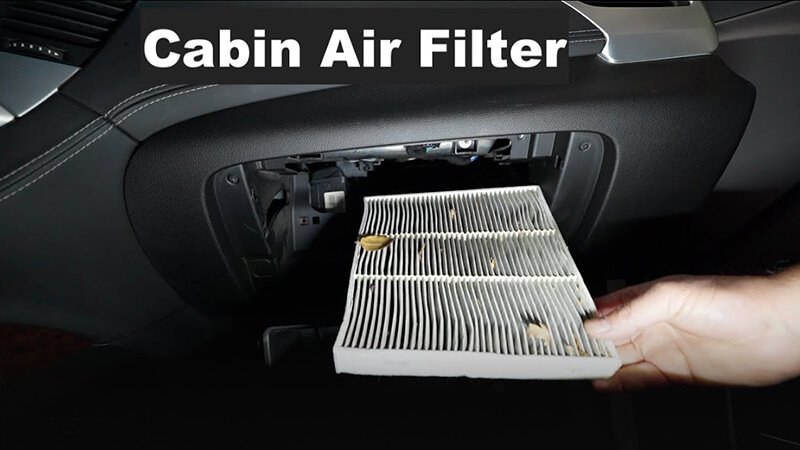When your car’s A/C feels weak, it’s easy to blame the system. But what if the real issue is something simpler—and cheaper to fix?
Yes, a dirty air filter can affect your car’s air conditioning. It restricts airflow, strains the A/C components, and makes your cabin feel warmer than it should.
Many drivers overlook the air filter when diagnosing poor cooling. But this small part plays a big role. When it's clogged, it reduces airflow across the evaporator coil. That chokes the system, overworks the blower motor, and makes the A/C feel like it’s failing. Let’s look deeper into why it happens—and how to fix it.

Will changing the air filter help AC in a car?
Sometimes your A/C doesn’t need repairs—it just needs to breathe again.
Changing a dirty cabin air filter restores airflow through the HVAC system. It helps the A/C cool faster and run more efficiently, especially in stop-and-go traffic or summer heat.
What does a clean air filter do for AC?
The cabin air filter1 acts like the lungs of your HVAC system. If it's clogged, airflow drops, and the evaporator coil2 can't do its job. You get poor cooling and sometimes even odd smells. The A/C might still be “on,” but it won’t feel like it’s working.
Here's how a clean filter improves A/C:
| Feature | Dirty Air Filter Effect | Clean Air Filter Effect |
|---|---|---|
| Airflow | Reduced, restricted | Restored, free-flowing |
| Evaporator Coil Cooling | Limited heat exchange | Full cooling capacity |
| Blower Motor Load | Overworked, noisy | Normal, quieter operation |
| Cabin Temperature | Warmer, uneven | Cooler, more consistent |
| System Efficiency | Decreased, higher energy draw | Improved, more responsive |
From our own testing at Runex Auto, we’ve seen measurable improvements. We benchmarked cabin temperatures before and after air filter replacements using our high-flow filters. In most cases, cabin temps dropped by 3–5°C within minutes after switching to a clean filter.

Will a dirty filter cause AC to not cool?
When airflow drops, cooling suffers—simple as that.
Yes, a dirty cabin air filter can make your A/C feel like it’s not cooling at all. It blocks airflow to the evaporator, causing a drop in cooling performance—even when the system itself is functional.
It’s not always a refrigerant problem
Too many distributors assume a customer’s A/C isn't working because of a leak or failing compressor. But we’ve seen another story in the field.
In 2023, a UK distributor told us their HVAC part return rate spiked. Customers said, “A/C not cooling3.” But the issue wasn’t the evaporator or refrigerant—it was clogged cabin filters4. When they switched to our Runex high-flow filters5, returns dropped 80%.
Here's what happens:
- The evaporator coil gets less airflow, reducing heat exchange.
- Cooling slows down, especially when the car is idle.
- Blower noise increases because of pressure build-up.
- Drivers feel warm air even when the system is working.
Most drivers think the A/C has failed. But after replacing the filter, cooling usually improves right away.

Why is my car AC not blowing cold air?
The cause may not be mechanical—it might just be blocked airflow.
If your car’s A/C isn’t blowing cold air, the cabin air filter could be clogged. This limits air circulation over the cooling coil and prevents the system from cooling the cabin properly.
Start with the basics before replacing parts
It’s tempting to jump straight to expensive repairs when A/C performance drops. But starting with the cabin air filter6 often solves the problem.
Here’s a simple troubleshooting framework we recommend:
| Symptom | Possible Cause | Recommended Action |
|---|---|---|
| Weak airflow, warm air | Clogged cabin air filter | Replace with a clean high-flow filter7 |
| Loud blower, high fan setting needed | High backpressure from blockage | Check and replace air filter |
| AC works while driving but not idle | Insufficient airflow at low speeds | Inspect cabin filter and evaporator coil |
| Musty smell or foggy windows | Mold buildup on filter | Replace filter, check for moisture traps |
We train our distributor partners to include filter checks in their HVAC service SOPs8. It saves time and cost—for them and their customers.

What are the symptoms of a dirty air filter?
Many issues blamed on HVAC failure actually start with a filter.
The common symptoms of a dirty cabin air filter include weak airflow, noisy blower, foggy windows, musty smells, and uneven cabin cooling. These signs point to restricted airflow across the HVAC system.
Recognizing the early warning signs
We’ve seen drivers complain of “AC not working” when the real issue is simply neglected maintenance. Here are some symptoms worth watching:
1. Weak airflow at the vents
You crank the fan up, but still feel barely a breeze. This usually means the filter is so clogged that air can’t pass through it.
2. AC only cools at high speeds
This is because natural airflow from driving helps overcome the restriction. At idle, the fan can’t push enough air past the coil to cool effectively.
3. Musty or dirty smell
Trapped dust, moisture, and bacteria inside the filter can create a stale odor. This not only smells bad—it’s bad for health.
4. Foggy or slow-defogging windows
Restricted airflow can affect the defrost function. Moisture stays trapped inside the car, making windows harder to clear.
| Symptom | Why it Happens | What It Means |
|---|---|---|
| Weak airflow9 | Filter is blocked by dust and debris | Needs immediate replacement |
| Noisy fan | Blower working harder to push air | Sign of pressure buildup |
| Uneven cooling | Air can't circulate evenly in cabin | Low airflow from vents |
| Bad smell10 | Mold or bacteria inside filter | Hygiene issue, possible health risk |
| Poor window defogging11 | Air not reaching windshield vents properly | HVAC inefficiency due to restriction |
For fleet operators and wholesalers, these are low-cost issues that cause high-cost complaints. But if you replace filters regularly—especially during pollen-heavy or dusty seasons—most symptoms never even start.

Conclusion
A dirty cabin air filter12 does more than collect dust—it throttles your entire HVAC system. It limits airflow, strains A/C components, and makes drivers think something is broken. But in many cases, it’s not a system failure—it’s just an overlooked filter. At Runex Auto, we’ve seen how switching to high-flow, durable cabin filters can dramatically reduce A/C complaints and boost customer satisfaction. When airflow improves, performance follows. Sometimes, solving A/C problems doesn’t take diagnostics—it just takes common sense.
-
Understanding the role of a cabin air filter can help you maintain your HVAC system effectively and improve air quality. ↩
-
Learning about the evaporator coil's function can enhance your knowledge of A/C efficiency and maintenance. ↩
-
Explore the various factors that can cause A/C issues in vehicles to ensure proper diagnosis and maintenance. ↩
-
Understanding the impact of clogged cabin filters can help you maintain your A/C system effectively and avoid unnecessary repairs. ↩
-
Discover how Runex high-flow filters can enhance your HVAC system's efficiency and reduce part returns significantly. ↩
-
Understanding the role of a cabin air filter can help you maintain your A/C system effectively and avoid costly repairs. ↩
-
Discover how high-flow filters can enhance your vehicle's A/C performance and overall air quality. ↩
-
Learn about HVAC service SOPs to improve efficiency and customer satisfaction in your service operations. ↩
-
Understanding weak airflow can help you prevent HVAC issues and ensure a comfortable driving experience. ↩
-
Discover the sources of bad smells in your car's HVAC system and how to address them for a healthier environment. ↩
-
Learn effective strategies to enhance window defogging, ensuring safety and visibility while driving. ↩
-
Know the best auto air fitler OEM product from Runex, clicking this link to get your best product for your business. ↩













